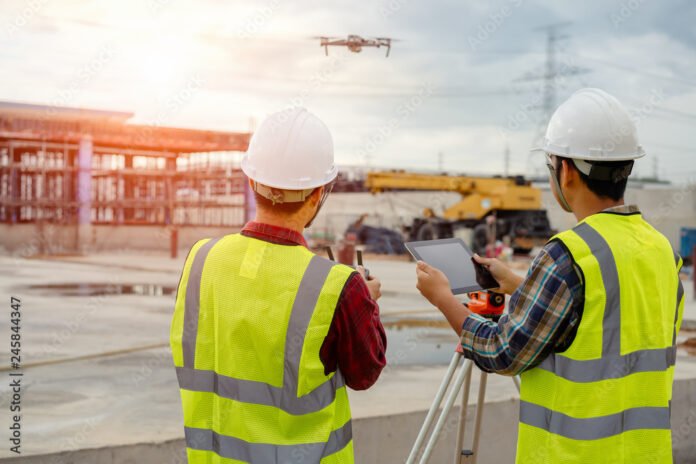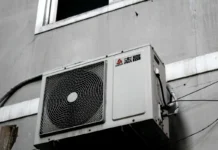You’re in charge of a construction site and you understand the weight of responsibility that comes with it. Keeping your site secure isn’t just about preventing theft or vandalism — it’s also about ensuring the safety and efficiency of your operations. Are you fully aware of the critical benefits that come with investing in effective construction site security? Read on to discover why it should be a priority in your project management strategy.
Theft Prevention
Investing in construction site security implements measures that significantly hinder theft. First, visible security measures, such as surveillance cameras, fencing, and access control systems, act as powerful deterrents. Potential thieves are more likely to target sites with low security due to the reduced risk of getting caught. Having mobile security patrols navigating the site also adds a layer of protection no other security method can offer. Second, advanced security systems can detect unauthorized presence and activities in real-time. This allows for rapid response, minimizing the window of opportunity for theft to occur.
Third, proper site security includes tracking systems for equipment and materials, making them harder to steal and easier to recover if theft occurs. Lastly, investing in security creates a culture of vigilance among the workforce. When employees are trained to understand and adhere to security protocols, they become an additional layer of protection against theft. Therefore, investing in construction site security is a proactive strategy to prevent theft and safeguard project assets.
Worker Safety
Investing in construction site security plays a crucial role in enhancing worker safety. An effective security system provides a safe working environment by reducing the risk of accidents and injuries. For instance, surveillance cameras can monitor key risk areas and safety practices, ensuring that safety protocols are strictly followed. Access control systems restrict unauthorized entry, eliminating the risk of interference from outsiders, while security personnel can provide immediate response to onsite accidents or emergencies.
Furthermore, workers feel safer knowing that measures are in place to protect them, which increases productivity and morale. Therefore, construction site security is not just about preventing theft, but it’s a fundamental measure to ensure the welfare of every worker.
Legal Compliance
Construction companies have a lot of compliance concerns they must address. These are the following:
- OSHA standards
- Access control regulations
- Environmental regulations
- Building codes and standards
- Privacy laws
- Contractual obligations
- Fire safety codes
- Insurance requirements
- Emergency Preparedness
- Anti-discrimination laws
- Record keeping and reporting
The Advantages of Design-Build Construction for Commercial Projects
Investing in construction site security ensures adherence to OSHA standards, as safety protocols are observed to reduce workplace hazards. Access control measures conform to regulations, confining entrance to authorized personnel only. Surveillance cameras monitor environmental regulations, detecting any non-compliance. Advanced security systems can validate adherence to building codes, privacy laws, and fire safety codes.
Security investments also fulfill insurance requirements by minimizing risk and potential claims. It aids in documenting emergency preparedness drills, and ensuring readiness in crises — additionally, security systems aid in maintaining records, which is essential for compliance with record-keeping laws. Therefore, security investments are instrumental in achieving legal compliance, besides safeguarding construction sites.
Project Continuity
A well-secured site is less likely to face delays and potential financial losses caused by theft, vandalism, or unauthorized site access. It also reduces the risk of project interruptions due to accidents and injuries, as stringent safety protocols are enforced. Moreover, when compliance with legal and contractual obligations is maintained, this prevents work stoppages or fines that could arise from non-compliance. Advanced security systems can also provide valuable data for project management, such as time and attendance tracking, which support efficient planning and scheduling.
By fostering a safe, secure environment, the morale and productivity of workers are boosted, further underpinning smooth project progress. Therefore, investing in security is not just a preventive measure, but a strategic investment to ensure the seamless continuity of construction projects, safeguarding both people and resources.
Insurance Premium Reduction
Robust security measures lower the risk of incidents such as theft, vandalism, and accidents, which are factors often considered when determining insurance rates. When a site is well-secured, the chances of making an insurance claim are minimized, which is favorable to insurers. Surveillance systems, access control, and mobile security patrols not only deter unauthorized activities but also promote adherence to safety protocols, further reducing the likelihood of accidents.
As a result, insurance companies may offer lower premiums, recognizing the reduced risk associated with sites that implement comprehensive security measures. Therefore, an upfront investment in security can lead to long-term financial savings through reduced insurance premiums.
Reputation and Client Satisfaction
Investing in construction site security significantly enhances a brand’s reputation and boosts client satisfaction. A safe site is a testament to a company’s commitment to best practices, safety, and professionalism. It sends a message to clients and stakeholders that the company values integrity, diligence, and excellence. By preventing theft, ensuring worker safety, maintaining legal compliance, and promoting project continuity, security measures contribute to the successful delivery of construction projects on time and within budget.
This exceeds client expectations, fostering trust, and generating repeat business. Additionally, a good security record can differentiate a company in a competitive market, attracting new clients who prioritize safety and reliability. Therefore, investment in construction site security is an investment in the company’s reputation and client satisfaction.
Emergency Preparedness
Robust security infrastructure can detect potential risks and hazards early, allowing time for efficient evacuation or appropriate response. Surveillance cameras, for instance, can monitor the site for unusual activity or safety hazards and alert security personnel in real-time. Furthermore, advanced security systems can assist in coordinating emergency drills, ensuring that all personnel understand their roles and responsibilities during crises. In the event of a genuine emergency, security systems facilitate effective communication and swift action, minimizing potential harm.
Moreover, post-incident, these systems provide valuable data for analysis and learning, enabling continuous improvement of emergency response plans. This means that you’ll be able to repair any damage as soon as it occurs because you’ve counted on the possibility of it happening. Hence, a well-secured construction site is a well-prepared one, capable of responding effectively to emergencies, thus protecting people, property, and productivity.
In conclusion, investing in robust security at your construction site is not an expense, but a strategic decision that pays dividends. It safeguards your assets, ensures worker safety, keeps you compliant with laws, fosters project continuity, reduces insurance costs, bolsters your reputation, and prepares you for emergencies. So, take that thoughtful step towards securing your construction site today, and enjoy the peace of mind that comes with a secure, efficient, and productive operation.







